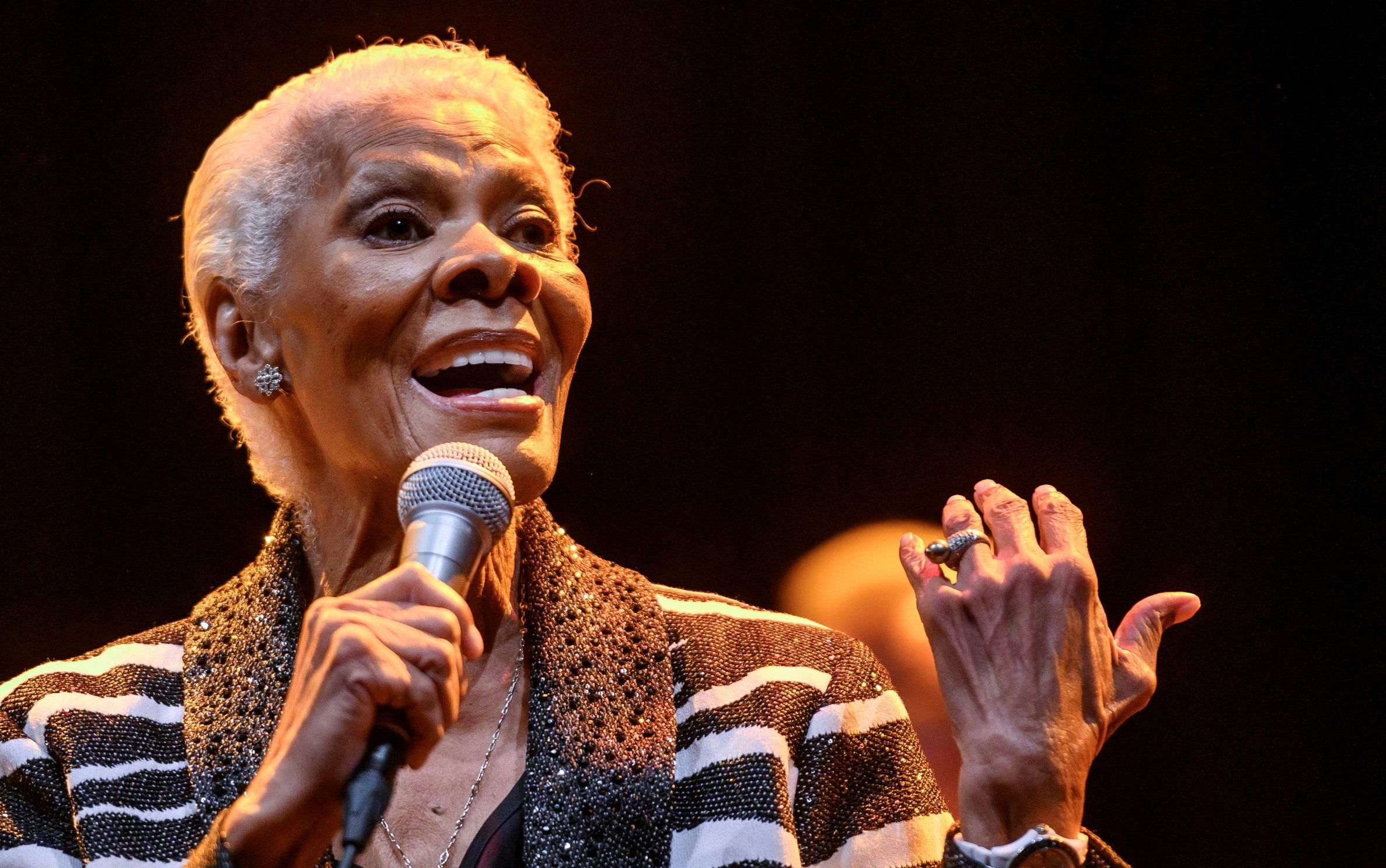Dionne Warwick’s voice floats through large chunks of pop-music history.
She’s had about a dozen top-10 hits, spanning 23 years … plus 40-some other singles on the charts. She’s sung everywhere, done everything. But that’s just the start, Dave Wooley said.
“Dionne(shown here) is a genius,” said Wooley, writer and co-director of “Dionne Warwick: Don’t Make Me Over,” which debuts at 9 p.m.ET New Year’s Day on CNN. “And I don’t just mean a music genius.”
He’s marveled at that, ever since working on her 2011 autobiography. “She would tell me these unbelievable stories and anecdotes.” Several show up in the film; there is Warwick in:
— The Jim Crow-era South, standing up to an arrogant waitress.
— The White House, where Ronald Reagan had never said “AIDS” during the first seven years of his presidency. “I made him say it,” she said.
— Paris, with Marlene Dietrich discarding her wardrobe and introducing her to couture.
— And her mansion, conducting an instant seminar for “gangster” rappers.
Wooley asked Snoop Dogg to verify that one. “When I brought it up, a light went on …. He said there would not be a Snoop Dogg without a Dionne Warwick. He thinks of her as a mother or an auntie.”
One of Snoop’s first singles called women “bitches” eight times and “hoes” three more. Warwick demanded that rappers be at her home at 7 a.m.; they were there by 6:52, Snoop said. She then suggested they call her a “bitch” to her face; they didn’t.
Such stories remind us of Warwick’s roots in the church. When she was 6, she says in the film, the preacher (her grandfather) called her to the pulpit to sing “Jesus Loves Me.” She closed her eyes and sang softly … until she heard the audience reaction. “I opened up my eyes and let it go … That was my first standing ovation.”
She kept singing in church and then in a gospel quartet that her mother managed and her mother’s sister (Cissy Houston) sang in. They sang background for pop records, something Warwick later did on her own. “I made a very, very good living; it put me through college.”
Many pop stars admit they can’t read music, but Warwick — who studied at Hartt, a music conservatory at the University of Hartford – was the opposite. “She could sight-read music, no matter how complicated it was,” Wooley said.
That was crucial, he said, when she worked with composer Burt Bacharach, “with his many modulations and chord changes …. Just look at ‘Promises, Promises.’”
Warwick kept having hits with Bacharach and lyricist Hal David, from “Walk on By” to “I’ll Never Fall in Love Again.” She had less impact with others, but hit No. 1 as the lead voice in the 1985 AIDS-awareness song, “That’s What Friends Are For.”
Five years later, Wooley’s business partner (former basketball great Julius Erving) asked if he wanted to catch a meeting with her. “I just jumped out of my seat. ‘Are you kidding me, man? Dionne Warwick? One of the greatest singers of all time!’”
Music had been a passion for Wooley, who grew up near the Apollo Theatre in Harlem. As a teen, he drummed on demo tapes for Cissy Houston and others.; now he and Erving were hired to produce concerts and events for Warwick.
That led to the book and then an attempt to make a documentary. Lots of backers sounded interested; none committed. “Then someone told me: ‘The only way a documentary is going to be made is you have to will it to be made.’”
So he persisted. He searched “a treasure trove” of material from the late Gary Keys, a pioneering director of jazz documentaries. There, he found unseen footage, including young Warwick at the Apollo and the late Whitney Houston (Cissy’s daughter) discussing her cousin Dionne.
New interviews fell into place. “No one said no,” Wooley said – including Bill Clinton, who described taking his girlfriend (Hillary Rodham) on a road trip spurred by “Do You Know the Way to San Jose?”
The bad times are mentioned only briefly. Warwick dismisses discussion of her bankruptcy (“If General Motors can file for bankruptcy, why can’t Dionne Warwick?” she asks) and of the quick divorce from her marriage to William Elliott: “I woke up and realized I didn’t want to be married.”
(They remarried the next year, this time lasting eight years. Their two sons are in the music business.)
The film briefly mentions her ties with the Psychic Friends Network, but skips the break-up of the Bacharach/David/Warwick triad; it also skips accusations that her foundation squandered AIDS money.
(In the film, leaders credit her with raising millions for AIDS research. Adds Stevie Wonder: “Her heart is one of the greatest of all time.”)
This isn’t one of those music films about a messy life and early death. It’s the portrait of a performer who remains vibrant at 82.
It scored some quick victories at film festivals, then was bought by CNN … shortly before the network’s new owners made a cost-cutting decision to only use in-house documentaries. For now, we can celebrate past years of great CNN films … and past decades of soaring Warwick hits.
